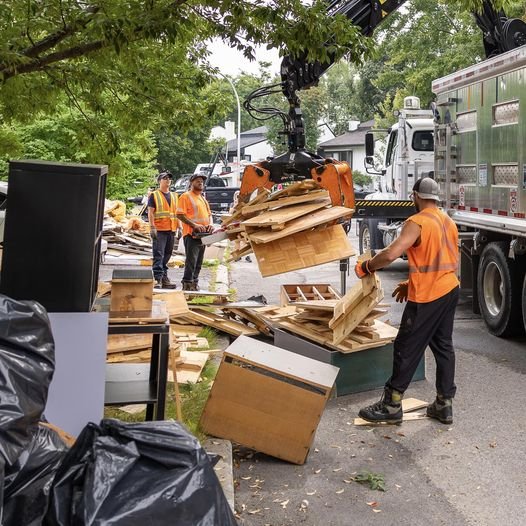Remnants of Hurricane Debby devastated Laval, Montreal and other areas of Quebec

The remnants of Hurricane Debby that travelled across southern Quebec on August 9 and 10 are estimated to have caused nearly $2.5 billion in insured damage, according to initial estimates from Catastrophe Indices and Quantification Inc. (CatIQ).
This one flood event now ranks as the costliest insured event in Quebec’s history, surpassing even the 1998 ice storm.
“The record-breaking downpour caused by the remnants of Hurricane Debby has led to a surge in insurance claims related to flooded homes, businesses and vehicles,” said Johanne Lamanque, vice-president for Quebec of the Insurance Bureau of Canada (IBC).
“From the very beginning of this crisis, insurers deployed extraordinary measures to respond as quickly as possible to their clients’ need for financial support,” she said.
While insurers say they are continuing to assist their customers with financial support as rapidly as they can, the sheer volume of claims, coupled with skilled labour shortages and continued strains in Canada’s supply chain, means that the claims process will take time.
As IBC recently reported, Canada’s home, auto and business insurers are grappling with the most challenging summer on record for damage from severe weather events and natural disasters.
The flooding in Toronto and other parts of southern Ontario, the Jasper wildfire, the Calgary hailstorm and flooding in regions of Quebec, have resulted in approximately 228,000 insurance claims.
By comparison, last year, insurers reported 113,000 claims in July and August and 160,000 claims for the entire year amidst record-breaking wildfires across the country.
Canada’s insurers are simultaneously supporting customers impacted by the flooding in Quebec, the July and August southern Ontario floods, the August Calgary hailstorm and the Jasper wildfire. The insurance industry is on the ground in Quebec, Ontario and Alberta, assisting customers as they put their lives back together.
“Insurers are paying out more in claims for the Quebec flood event than the federal government has invested on climate adaptation over the past decade,” said Craig Stewart, vice-president for climate change and federal issues at IBC.
“Launching the promised National Flood Insurance Program is the single most-important step the federal government can take to better protect homeowners from the financial risks of climate change,” he added.
“Unless the federal government commits the necessary resources during the upcoming parliamentary session, with the backing of the provinces and territories, insurers will not be able to support the program before 2026.”
He said all levels of government must immediately take measures to stop building and rebuilding on flood plains and areas prone to wildfire, invest in disaster mitigation, including upgrades to stormwater infrastructure, and roll out programs to help fire- and flood-proof homes.
According to IBC, insured losses related to severe weather in Canada now routinely exceed $2 billion annually.
By comparison, between 2001 and 2010, Canadian insurers paid out an, on average, $701 million a year in claims related to severe weather.
2024 losses are now an order of magnitude higher.



